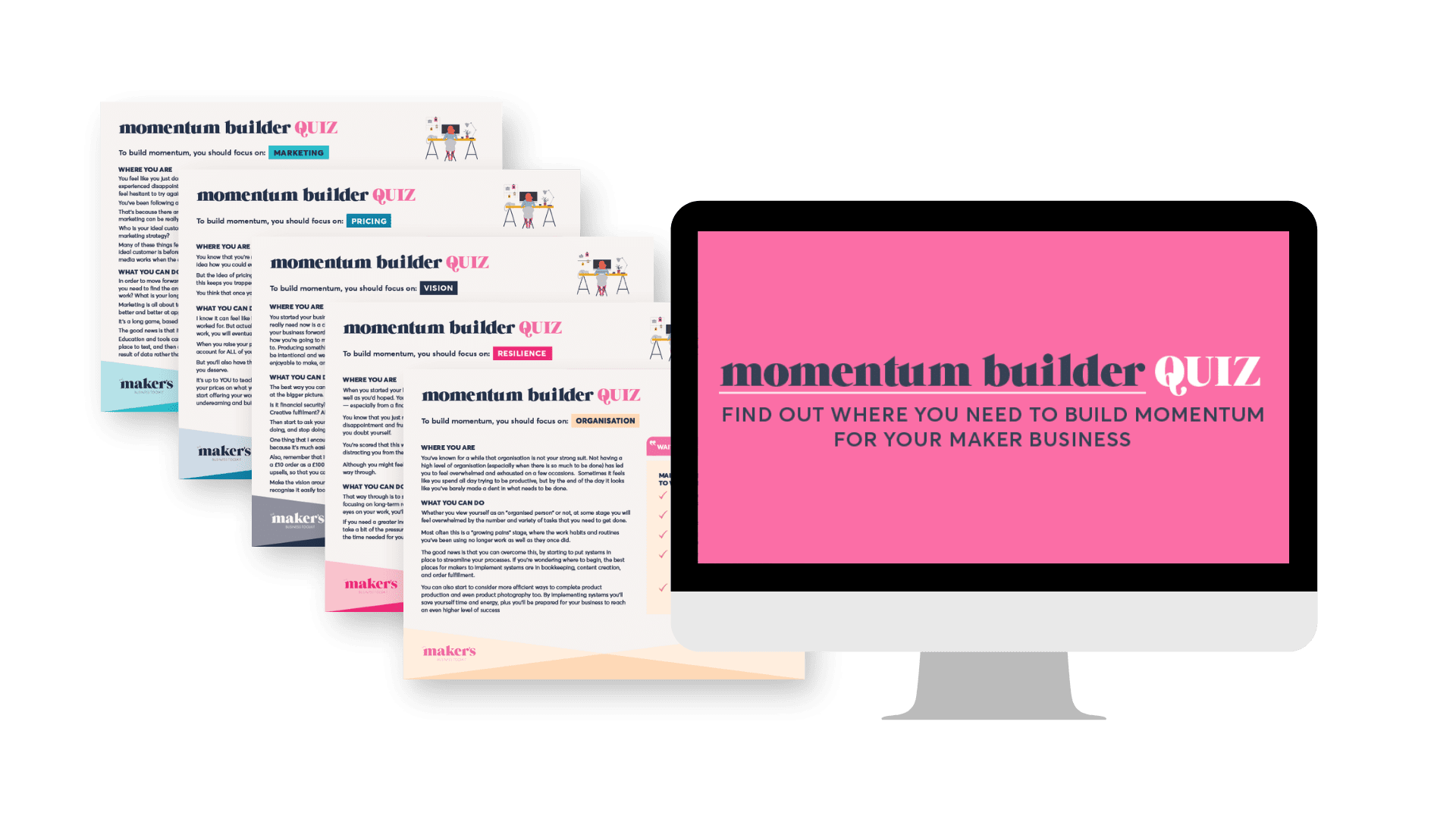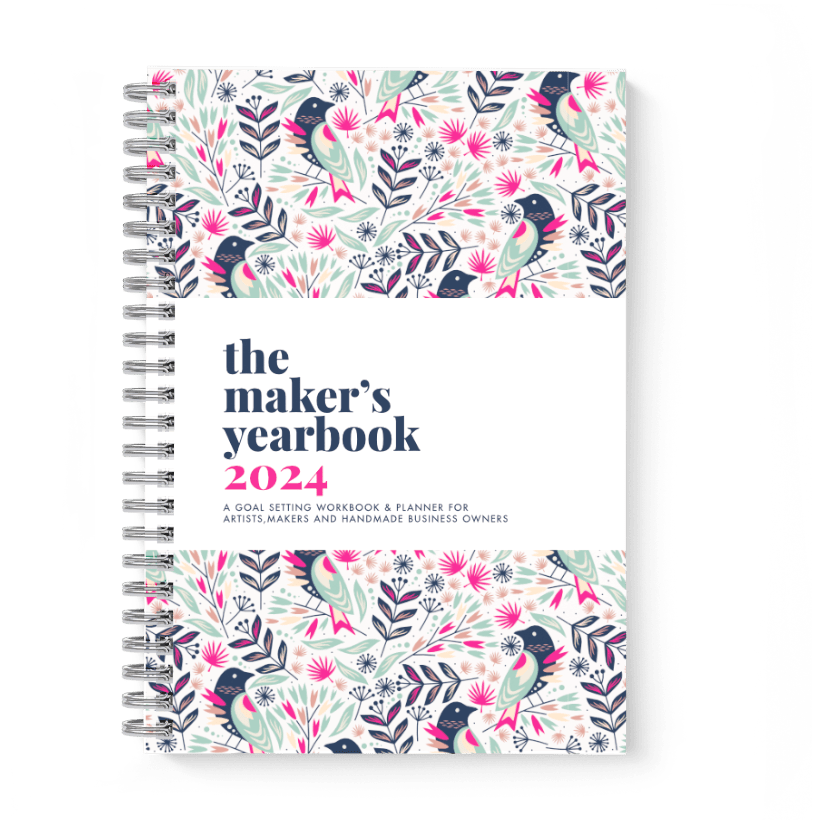We’ve all seen those articles. Probably when we were scrolling social media, procrastinating on some task for our business that we know we need to do, but don’t know how to start.
25 things creative people do differently from the rest 15 ways that creative people see the world differently Creative people are a different breed. Here’s how.
They’re clickbait for creatives. And they make us feel good. We feel special – like we have some superpower that only a few are blessed with.
But we probably should also feel a little patronised and undervalued too.
Because what is almost never included in those lists? Money. Success. Recognition.
These articles typecast creative people as mystical creatures, spontaneously inspired to express themselves, flighty and distractedly skipping from one idea to another, never prepared to make a compromise in the name of paying the rent.
The reality, for most of us, is quite different. If you’re distracted, it’s probably got everything to do with paying the rent, and bringing up the kids, and taking care of your elderly mother.
Working a 9 to 5 job at the same time as trying to build a business so that you can do work that you enjoy and avoid using your brain and your creative talents to put money in someone else’s pocket for the next 30 years.
The mystical creative fairy tale is a lie. A manufactured fantasy that seems flattering, but is really designed to keep us in our place.
Mystical creative fairy types can’t worry themselves about the dirty business of money. They shouldn’t care if they have to live in poverty because they get to do what they love.
And if you see these kinds of descriptions of creative people and feel like a fraud? Even better.
This story about creative people keeps us doubting ourselves and our ability to profit from our own skills. Never asking too much and never expecting too much of ourselves. Grateful to get paid at all, when someone offers to take our brilliance and turn it into cash.
The world wants to put us in a box and value us in symbolic ways because then they don’t have to value us with real money. And we shouldn’t help them do it.
The truth is that creative people aren’t one homogenous group. Some struggle to focus. Some don’t. Some hate numbers. Some love spreadsheets as much as they love their paints.
Some want to dedicate themselves to making social change and doing something really innovative. Others just want to make beautiful things that make people happy.
Creative people are as different from each other, as any other group of people.
But when you do creative work, you do develop a group of really valuable skills. Skills that not only help you to make your work, but could also help you to run a successful business.
The ability to experiment, learn from what works and what doesn’t work, stick with it when it’s not working, and then find peace with something that is the best you can do with the skills you’ve got right now.
The process of making your work, and the things you learn from it, are the transferable skills you never knew you had. And they can be used to grow our businesses….and yes, to plan our time.
The idea that anyone who can see a piece of creative work through to completion is flighty or easily distracted, or can’t stick to something is laughable.
But it is true that managing how you spend your time when you don’t have a boss or any established work system to help you is one of the biggest challenges that creative business owners face.
There’s no one to tell you what to do. Which is amazing. And also terrifying. It’s easy to feel lost and it’s normal to struggle with it.
But what no one realises is that using your time in a mindful way and developing a working style and routine as unique as you, is a creative process. Just like making your work.
There are problems to be solved and things to be tried and sometimes they will work and sometimes they won’t. Sometimes you’ll know why they didn’t work and sometimes you won’t. Sometimes you’ll need new skills or new perspectives.
When most people think of time management, they think about being as productive as possible. Hustling. Doing more. Working smarter, not harder so that they can fit more in.
The perception is that it’s about time hacks and discipline and sticking to exactly what you said you were going to do.
But actually, it’s about flow and mindfulness and intention.
What do I mean by that?
Well, when most people think of planning their time, they think about filling in little boxes or slots on a calendar.
In fact that’s one of the most common complaints we get about the Maker’s Yearbook – that it doesn’t have time slots so that you can plan out what you’re gong to do in every hour of the working day.
If you’ve ever tried working this way – blocking out all of those little slots for a week or even a month into the future, you probably found that it quickly became overwhelming and a little oppressive.
That’s because maker businesses don’t usually fit into that corporate model. Many of us set up our business because we can’t or don’t want to work that way, but when we’re faced with what to do today with no rules, it’s almost too much freedom. And we quickly fall back into mimicking corporate ways of working, just because we’re not sure what else to do.
But planning the things that are most important to you and then setting aside time to do them doesn’t need to tie you to rigid structures. And you’ll be much happier if you don’t build your business around the corporate model of work you’ve just left behind.
There’s no question that developing a healthy relationship with goal setting and time management takes a bit of practice.
In fact, after helping hundreds of makers with this in Makers’ Momentum Club I can say that achieving a set amount of work in a set amount of time isn’t something that anyone gets right the first time, or the first hundred times.
As a maker, you will need to learn how to adapt your plans to the unexpected things that pop up all the time, and the peaks and troughs in your energy, concentration and motivation.
Many of us spend the first years of our business wishing we didn’t have these interruptions or pushing through the burnout, but setting your plans to work with your known obstacles and learning to flexibly manage through the unexpected ones can make for a much more healthy relationship to work. And it takes practice.
That’s where planning comes in. Because in order to be able to work this way, you need to understand how long certain tasks take you, and how that changes depending on when you do them, and how you do them.
Planning your time lets you aim for something and then measure the results. It’s basic. It’s boring. But it leads to a better relationship with work.
Fewer last minute panics because you thought you could get something done much faster than you actually could.
Less frustration when the rest of your life interrupts, because you’re planning for these things, expecting them, and then looking for ways to improve what you can, and accept the rest.
Better decisions for your business – not holding back on hiring help or persisting with low priced products it’s killing you to make.
And, best of all, protecting the time you need to experiment with your work AND the restorative time you need in order to be able to create at all.
Being more mindful about how you use your very valuable time and tracking it more closely can change a lot of things that may be painful for you right now when it comes to your business.
So if you’re struggling to make this a priority, it’s not because you’re a mystical creative fairy who can’t focus. It’s probably because you haven’t found a way to make it meaningful to you yet.
You haven’t connected this work to the bigger vision for your life and your creative work. You’re not seeing it as a way to protect yourself and your creative work.
Maybe you’re still seeing it as a way to squeeze more in, and you’re not doing it because you actually don’t really want that.
The reasons why you’re struggling to manage your time and stick to your plans run deep. They’re personal and profound even. They’re your body and mind’s way of telling you that you’re off course.
But they are not about the fact that you are a creative person.
If you want to join us in Makers’ Momentum Club, where we do the work on this kind of thing all the time, you can find out more about how to join here.








